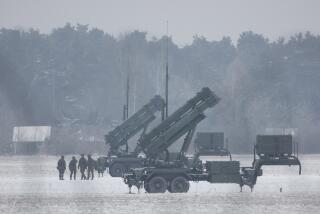Iraq war cost: $6 trillion. What else could have been done?
- Share via
In case you were wondering, the price tag for the war in Iraq could eventually top $6 trillion.
Tuesday marks the 10th anniversary of the U.S. invasion, occupation and slugfest of Iraq, which, lest we forget, was begun in the name of protecting us from weapons of mass destruction that never existed.
A study by Brown University’s Watson Institute for International Studies finds that the war has cost $1.7 trillion so far, with an additional $490 billion in benefits owed to war veterans.
Those costs could grow to more than $6 trillion over the next 40 years, the report concluded.
The war has killed at least 134,000 Iraqi civilians and may have contributed to the deaths of as many as four times that number. Factoring in security forces, insurgents, journalists and aid workers, the death toll rises to an estimated 176,000 to 189,000.
As taxpayers, we’re all on the hook for that estimated $6-trillion tab. That’s nearly half the current national debt.
We spent about $550 billion on Medicare last year. Six trillion bucks would fund our healthcare coverage for seniors and disabled people for roughly a decade.
Federal spending for Medicaid, the healthcare program for low-income people, ran about $250 billion last year. So $6 trillion represents nearly 20 years of funding.
The federal government spends an estimated $524 billion on public elementary and secondary school systems annually. With $6 trillion, you’re looking at a massive infusion of cash into our cash-strapped schools over a number of years.
The Environmental Protection Agency had a budget of about $9 billion last year. With $6 trillion, you could run the agency that protects Mother Earth for more than 600 years.
This is all just idle speculation, of course. The money’s gone -- or will be as future war-related expenses eat it up.
It sure is something, though, to think about the good that could have been done if we’d decided to use that cash for purposes other than to pound the stuffing out of a country that posed no actual threat to us and had no true intention of doing us harm.
More to Read
Inside the business of entertainment
The Wide Shot brings you news, analysis and insights on everything from streaming wars to production — and what it all means for the future.
You may occasionally receive promotional content from the Los Angeles Times.











